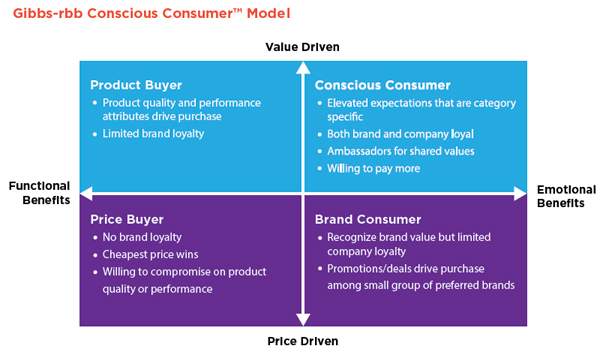Food consumers concerned about food source as much as price, brand and nutrition represent $200B, or about one-quarter, of the annual food sales market, according to a study by a joint venture of G&S Business Communications and rbb PR.
These so-called "conscious consumers" skew demographic data of politics and priorities but see a food brand through a lens of its relationship with society and the environment.
Gibbs-rbb principal Jeff Altheide calls the view "from soil to shelf," adding that "deep, integrated" communications are necessary to win such consumers' business.
Key to underlining PR's importance in reaching this changeable demographic is the reality that controversial news affects consumer brand loyalty. Gibbs-rbb found 77% said they would switch from a trusted food brand after a product recall, while, perhaps more notably, 73% would change over animal welfare concerns and 72% would move on after news of irresponsible labor practices connected to a brand. [Complete study is at http://odwpr.us/1F5gklY.]

As to source of such information, these "conscious consumers" cited word-of-mouth discussions (71%), news media (68%), content from food retailers (66%) and content from food companies (66%) as important in assessing brands and their relationship to food source, the environment and safety.
A Genuine Approach
Authenticity is also important. Citing a Boston Consulting Group study, the firms note that a criticism of so-called responsible consumption products is that product claims can be vague, misleading or simply mistrusted. "A genuine attempt" to meet consumer needs – known what is "both important and possible" -- is more important than appearing to kowtow to every interest group and consumer segment, the Gibbs-rbb study cautions.
That authentic communication must translate across a brand's company, from corporate communications and IR to customer service and employee communications, the firms said.
The reward appears worth it for food marketers. Gibbs-rbb found that Americans are willing to spend an extra 31% per week -- or $37.30 -- for food that is safe and sustainably produced, based on an average weekly food spend of $119.30. Millennial "conscious consumers" said they'd fork over an extra $63.90 per week.


 What the biggest meal of the day can teach us about serving up effective nutrition communications campaigns.
What the biggest meal of the day can teach us about serving up effective nutrition communications campaigns. Tips to refine and amplify your CPG brand strategy to win in 2024 and beyond.
Tips to refine and amplify your CPG brand strategy to win in 2024 and beyond. Strategic communications strategies for success in the growing “food is medicine” movement.
Strategic communications strategies for success in the growing “food is medicine” movement. How brands can authentically communicate sustainability issues and create a brand experience that’s compatible with consumers’ values.
How brands can authentically communicate sustainability issues and create a brand experience that’s compatible with consumers’ values. Communicating the effects that climate change and a growing world population have on our food system—and why change is needed.
Communicating the effects that climate change and a growing world population have on our food system—and why change is needed.


 Have a comment? Send it to
Have a comment? Send it to 
No comments have been submitted for this story yet.